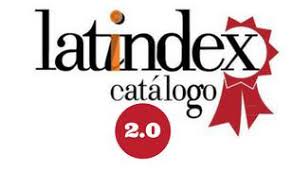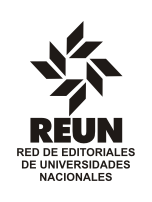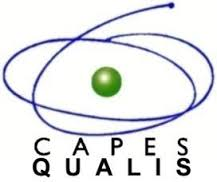“La pedagogía del malestar” y sus implicaciones éticas: Las tensiones de la violencia ética en la educación de la justicia social
Resumen
Palabras clave
Texto completo:
PDFReferencias
ADAMS, M.; BELL, L. and GRIFFIN, P. (Ed.). (2007). Teaching for Diversity and Social Justice. 2nd ed. New York: Routledge.
BERLAK, A. (2004). “Confrontation and Pedagogy: Cultural Secrets and Emotion in Antioppressive Pedagogies.” In Democratic Dialogue in Education: Troubling Speech, Disturbing Silence, edited by M. Boler, 123–144. New York: Peter Lang.
BOLER, M. (1999). Feeling Power: Emotions and Education. New York: Routledge.
BOLER, M. (2004a). “All Speech Is Not Free: The Ethics of ‘Affirmative Action Pedagogy’.” In Democratic Dialogue in Education: Troubling Speech, Disturbing Silence, edited by M. Boler, 3–14. New York: Peter Lang.
BOLER, M. (2004b). “Teaching for Hope: The Ethics of Shattering World Views.” In Teaching, Learning and Loving: Reclaiming Passion in Educational Practice, edited by D. Liston and J. Garrison, 117–131. New York: RoutledgeFalmer.
BOLER, M. and ZEMBYLAS, M. (2003). “Discomforting Truths: The Emotional Terrain of Understanding Differences.” In Pedagogies of Difference: Rethinking Education for Social Justice, edited by P. Trifonas, 110–136. New York: Routledge.
BOOSTROM, R. (1998). “‘Safe Spaces’: Reflections on an Educational Metaphor.” Journal of Curriculum Studies 30 (4): 408–437.
BUTLER, J. (1993). Bodies that Matter: On the Discursive Limits of “Sex”. New York: Routledge.
BUTLER, J. (1997). Excitable Speech: A Politics of the Performative. New York: Routledge.
BUTLER, J. (2004a). Precarious Life: The Powers of Mourning and Violence. London: Verso.
BUTLER, J. (2004b). Undoing Gender. New York: Routledge.
BUTLER, J. (2005). Giving an Account of Oneself. New York: Fordham University Press.
BUTLER, J. (2007). “Reply from Judith Butler to Mills and Jenkins.” Differences: A Journal of Feminist Cultural Studies 18 (2): 180–195.
DAVIS, D. and STEYN, M. (2012). “Teaching Social Justice: Reframing Some Common Pedagogical Assumptions.” Perspectives in Education 30 (4): 29–38.
ELLSWORTH, E. (1989). “Why Doesn’t This Feel Empowering? Working Through the Repressive Myths of Critical Pedagogy.” Harvard Educational Review 59: 297–324.
FAULKNER, J. and CROWHURST, M. (2014). “So Far Multicultural That She Is Racist to Australians: Discomfort as a Pedagogy for Change.” Pedagogy, Culture & Society 22 (3): 389–403. doi:10.1080/14681366.2014.910251.
FELMAN, S. (1992). “Education and Crisis, or, Vicissitudes of Listening.” In Testimony: Crises of Witnessing in Literature, Psychoanalysis, and History, edited by S. Felman and D. Laub, 57–75. London: Routledge.
FOUCAULT, M. (1994). “For an Ethic of Discomfort.” In Essential Works of Foucault, 1954– 1984, edited by J. D. Faubion. Vol. 3, 443–448. New York: The New Press.
IVITS, S. (2009). “Disturbing the Comfortable: An Ethical Inquiry into Pedagogies of Discomfort and Crisis.” Unpublished Master’s thesis, The University of British Columbia, Vancouver.
JANSEN, J. (2009). “On the Clash of Martyrological Memories.” Perspectives in Education 27 (2): 147–157.
JENKINS, F. (2007). “Toward a Nonviolent Ethics: Response to Catherine Mills.” Differences: A Journal of Feminist Cultural Studies 18 (2): 157–179.
KISHIMOTO, K. and MWANGI, M. (2009). “Critiquing the Rhetoric of ‘Safety’ in Feminist Pedagogy: Women of Color Offering an Account of Ourselves.” Feminist Teacher 19 (2): 87–102. doi:10.1353/ftr.0.0044.
KUMASHIRO, K. (2002). “Against Repetition: Addressing Resistance to Anti-Oppressive Change in the Practices of Learning, Teaching, Supervising, and Researching.” Harvard Educational Review 72 (1): 67–92.
LEONARDO, Z. (2009). Race, Whiteness and Education. New York: Routledge. LINDQUIST, J. (2004). “Class Affects, Classroom Affectations: Working Through the Paradoxes of Strategic Empathy.” College English 67 (2): 187–209. doi:10.2307/4140717.
MILLS, C. (2007). “Normative Violence, Vulnerability, and Responsibility.” Differences: A Journal of Feminist Cultural Studies 18 (2): 133–156.
MINTZ, A. (2013). “Helping by Hurting: The Paradox of Suffering in Social Justice education.”
Theory and Research in Education 11 (3): 215–230. doi:10.1177/1477878513498179.
RABINOW, P. and ROSE, N. eds. (2003). The Essential Foucault: Selections from Essential Works of Foucault, 1954–1984. New York: The New Press.
RAK, J. (2003). “Do Witness: Don’t: A Woman’s Word and Trauma as Pedagogy.” Topia 10:53–71.
ZEMBYLAS, M. (2012). “Pedagogies of Strategic Empathy: Navigating Through the Emotional Complexities of Antiracism in Higher Education.” Teaching in Higher Education 17 (2): 113–125. doi:10.1080/13562517.2011.611869.
ZEMBYLAS, M. and BOLER, M. (2002). “On the Spirit of Patriotism: Challenges of‘Pedagogy of Discomfort’.” Special issue on Education and September 11. Teachers College Record On-Line.
ZEMBYLAS, M. and MCGLYNN, C. (2012). “Discomforting Pedagogies: Emotional Tensions, Ethical Dilemmas and Transformative Possibilities.” British Educational Research Journal 38 (1): 41–59. doi:10.1080/01411926.2010.523779.

Este obra está bajo una licencia de Creative Commons Reconocimiento-NoComercial-CompartirIgual 4.0 Internacional.
 |
ISSN 1853-1318 (impresa) - ISSN 1853-1326 (en línea)
|
| Indizada en: | |
 | CCPP Catálogo Colectivo de Publicaciones Periódicas http://ccpp.caicyt.gov.ar/cgi-bin/koha/opac-detail.pl?biblionumber=149451 |
 | Núcleo Básico de Revistas Científicas Argentinas, Caicyt http://www.caicyt-conicet.gov.ar/sitio/revista-de-educacion/ |
 | Google académico (en proceso de actualización) |
 | Latindex https://www.latindex.org/latindex/ficha/14316 |
 | Redib http://redib.org/Record/oai_revista1003-revista-de-educaci%C3%B3n |
 | REUN https://www.reun.com.ar/ |
 | DOAJ Link/ |
 | Capes Qualis Link/ |
 | Journals for Free Link/ |
 | Latinoamericana (Asociación de Revistas Académicas de Humanidades y Ciencias Sociales) Link/ |
 | ERIH PLUS (European Reference Index for the Humanities and Social Sciences) Link/ |
 | ROAD (Directory of Open Acces Scholarly Resources) Link/ |
 | Directory of Research Journals Indexing (DRJI) Link/ |
 | LatinRev Link/ |
| Esta revista utiliza el Identificador Persistente | |
.png) |

